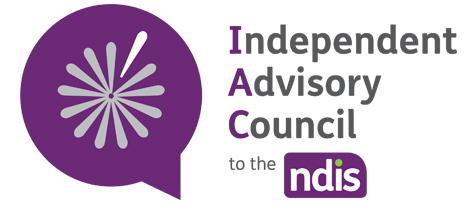Equity and Inclusion Reference Group meeting bulletin, 14 October 2024
The Independent Advisory Council (IAC) Equity and Inclusion Reference Group (Reference Group) met online on 14 October 2024. They discussed:
what they have heard in their communities about the National Disability Insurance Scheme (NDIS)
the ways the National Disability Insurance Agency (NDIA) collects data using intersectionality
how the Agency considers intersectionality in co-design.
Ms Leah van Poppel, IAC Principal Member and Reference Group Co-Chair, led the meeting.
What members have heard in their communities
Members reported NDIS legislation changes have caused anxiety and trauma in some parts of the community. There were calls for easier to understand information about the changes from the Agency. This may reduce the community’s reliance on support coordinators and dispel any misinformation on social media.
While the Agency’s letter to all participants helped share information about the legislative changes, some participants still feel uncertainty and worry about how the changes affect their plans. These participants want a greater sense of certainty about their plans and supports. They want the Agency to be clearer about when plan reviews happen and any debt recovery processes. Some participants worry they will make a mistake with their plan spending under the new rules and note there are delays with some payments.
The community are also concerned about foundational supports. There are calls for specialist skills for those delivering foundational supports. Some members note that these supports have affected participant plans since the new NDIS laws started.
Agency data collection and intersectionality
The Agency updated members on ways it collects participant data using an intersectional approach. Intersectionality refers to the many aspects of a person’s identity that may expose them to discrimination or marginalisation.
Members urged the NDIA to embed an intersectional approach in its future data capture. For example, including social characteristics such as Aboriginality, gender, ethnicity, sexual orientation, age, mental health, financial status and more. They also recommended the Agency form a working group to inform inclusive data collection.
Members called on the Agency to improve internal processes used to gather data for marginalised groups. This includes data related to people from lesbian, gay, bisexual, transgender, intersex, queer, asexual, sistergirl and brotherboy (LGBTIQASB+) and culturally and linguistically diverse (CALD) communities.
Co-design and intersectionality
The Agency updated members on how it considers intersectionality as part of co-designing reforms. Members suggested using an intersectional approach for Agency corporate planning processes and future co-design projects. This will reduce marginalisation for those who have overlapping social characteristics. Members also suggested practical improvements to NDIA co-design process. For example, ensuring people feel safe working with people of a different intersectional identity.
More information on the Reference Group
The Equity and Inclusion Reference Group will next meet in early 2025. Find out more about IAC and Reference Group meetings and bulletins at the IAC website.
Information in Easy Read
You can also read this bulletin in Easy Read:
